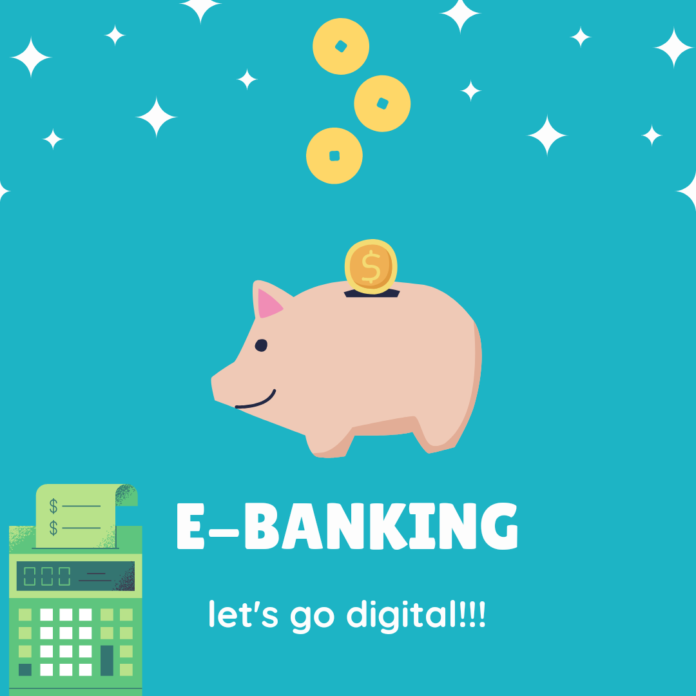Electronic banking is a road to the future. … Electronic banking makes it more convenient for customers to contrast bank services and products which can increase rivalry among banks and authorizes banks to penetrate new markets and thus amplify their geographical reach.
First, it should be Conducive to the Country’s Economic Conditions i.e. It requires a banking system that locates various sources of credit and generates suitable credit facilities for agricultural and other related sectors of the economy. Secondly, Sound Financial Basis. It should engender public faith for which it should be obligatory for the banks to attain license from the Govt. Banks should have enough minimal reserves to contain their credibility. Also, credit-related risks should be minimized. Last but not the least, Modernization. It must be integrated with the banking system of developed nations as a part of the overall globalization of diverse economic structures in different countries of the world.
The continuation in growth of Electronic banking also becomes imminent to the standards required to be matched at the international level. Several types of transaction can be handled through E-banking in the initial aspect most of the banking transactions can be performed cleverly through internet banking.
With the progressing advancements, E-banking brings it up to so many likeable benefits. For instance, the cost of operation per unit of services is lower for banks its nevertheless for E-banks, it offers convenience to customers since they are not required to go to the banking facilities, the customer can obtain funds at any time from ATMs, credit cards and debit cards allow customers to get discounts during periods of sale. We can use our bank’s website to pay our bills online and never worry about our check getting lost in the mailbox. Ultimately banks have a section in which you set up payees in which you need to fill out the information once, and then simply choose that payee every time you want to pay from that particular company.
Most banks will accredit you to set up a persisting automatic payment in the same amount every month. This aspect is advantageous for an expense like a car payment or insurance policy that doesn’t change on a month-to-month basis. We can willingly authorize a payee, such as an electric utility or mortgage provider, to automatically debit the amount of money you owe from your respective account.
Online banking allows us to access our account history and transactions from anywhere, whether a coffee shop or shopping trip you had in Paris. This is the quickest and most evitable way to see whether a transaction has cleared your account. We can contemporarily transfer money between interpolated accounts when we do it online.
It’s more convenient than going to a bank in person or using an automated phone service, which requires you to provide information when prompt.
When you have multiple savings goal—say, for the deposit on a home and for the cost of a wedding—you might contemplate opening numerous savings accounts and conveniently transfer money from your checking account into them. Savings accounts gravitate to have lower minimum balance fundamentals than checking accounts—and some banks don’t depend on one at all—so you won’t have to vamoose with a lot of money.
Before E-banking came into existence in India the relations between customers and banks were on a head-to-head basis. The bank branch was intricated in dealing with customers, payments, clearing, loan applications, opening accounts etc. But the head office was involved in generally clearing, size of branch, training, sanctioning of loans, keeping track of accounts of customers and it does not deal directly with customers.
In the 1980s internet cultivated rapidWithWith the thee, nearly 1980s customers had access to their accounts through the computers of banks. Later internet advanced as a network of communication and E-commerce came into existence. In May 1995, Wells Fargo which was the leading bank in the world to provide access to accounts, winter labelled its dits customers to see their accounts activity status.
In India, ICICI was the first bank to commence internet banking in early 1997 with the name of “Infinity”. Later ICICI bank ceased online banking services but in 1996-1998 for the Internet, it was the espousal phase, but its utilization increased in 1999 as a consequence of lower online charges, increase in PC discernment and Technology amiable atmosphere. E-banking started with the benefit of ATM’s and later contained telephone banking, electronic fund transfer, direct bill payments and online banking.
E-banking is a banking business procedure. Banks at the moment know that the internet opens up new horizons and is a crucial factor in the triumph of a bank and helps a bank to flourish internationally. The Banks in India started E-banking at the outset with unsophisticated and simple functions, for instance, getting information about the pace of interests, verifying account balances, clearing and calculating loan eligibility. Later on, the services were prolonged to online bill payments, electronic transfer of funds within accounts and Supervision of Cash for businesses. Currently, the banks are using EE-banking technology to encounter the increased competition.
Several new services are also being proposed by e-banking in particular payment of taxes, railway ticket booking etc. Whereas The banking sector in India was not acquiescent to use e-commerce applications as according to them, the transactions which are implemented electronically were open to hackers and viruses, which were not attributable. Also, e-banking became repulsive because online services were a concoction of insecurities, technology investment costs and an inadequate market- eagerness. Nevertheless, it has been ascertained that Internet banking has changed the banking industry as well as banking relationships in a positive way as cited above.
Electronic banking can provide multiple benefits for customers and new business events for banks, it aggravates traditional banking jeopardization. Even though considerable work has been compassed in some countries in acclimating banking and supervision regulations, continuous vigilance and revisions will be indispensable as the scope of e-banking boosts. Exceptionally, there is still a obligation to authorize greater harmonization and coordination at the international level. Moreover, the allay with which capital can probably be moved alongside banks and across borders in an electronic environment creates a leading sensitivity to economic policy management. To discern the jolt of e-banking on the supervision of economic policy, policymakers need a solid interpretive foundation. Externally, the markets will administer the answer, conceivably at an immense economic cost. Further research on policy-related issues in the period ahead is therefore critical.
‘‘Your comfort zone is yours and no ones other than you, as in consideration of financial situation only you face your responsibilities, check down your bank account to stay amended and remain relaxing in you comfort zone.’’ -Ojasvi Ohmjith









